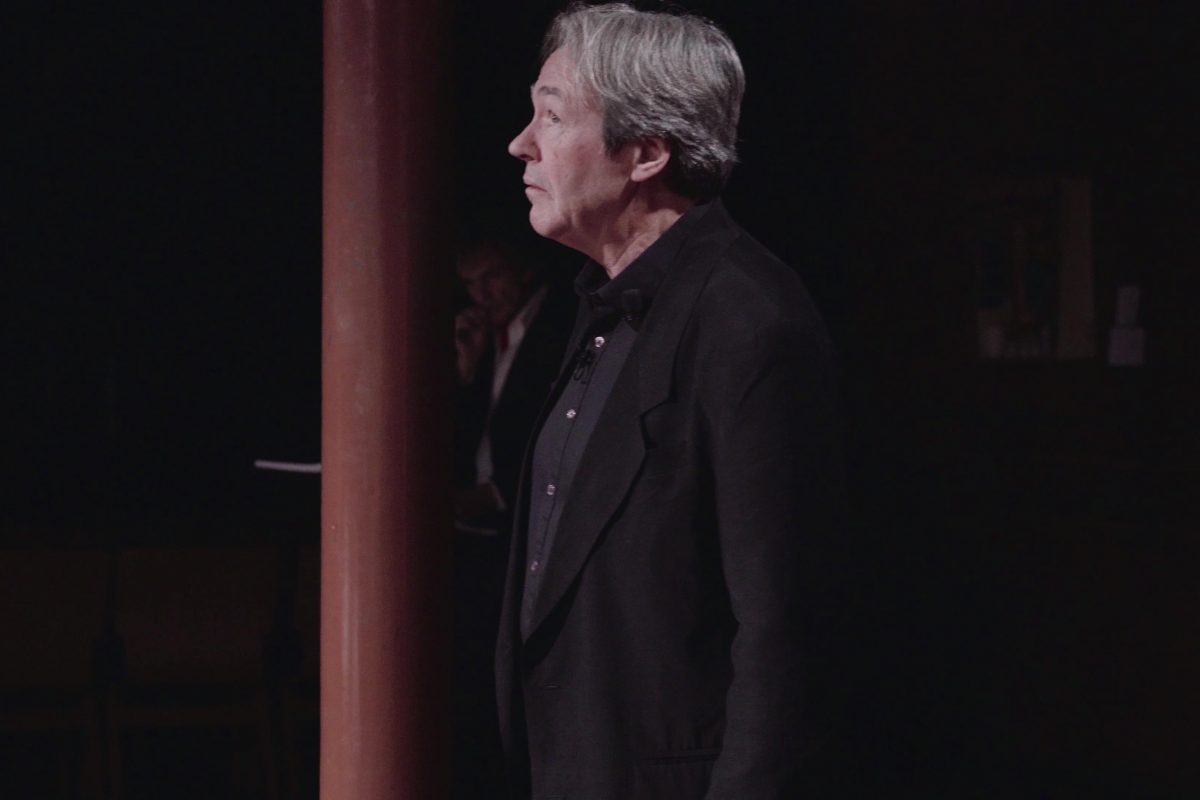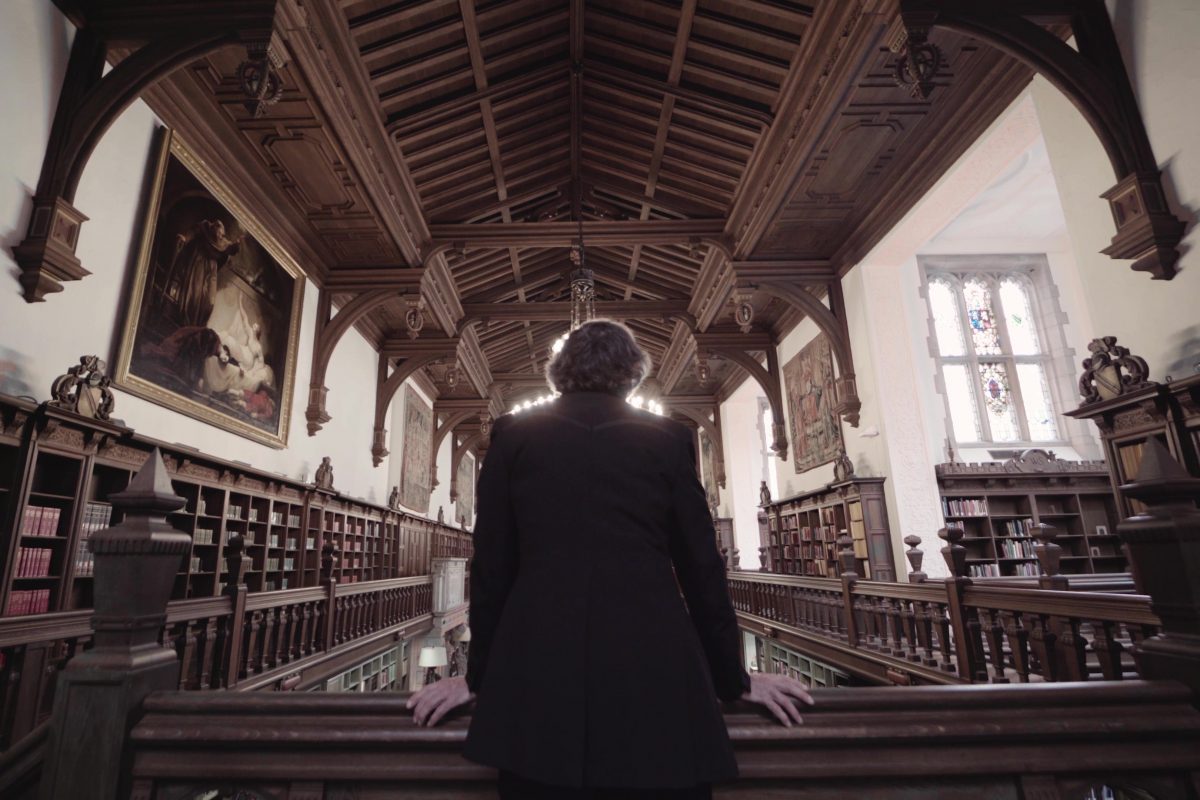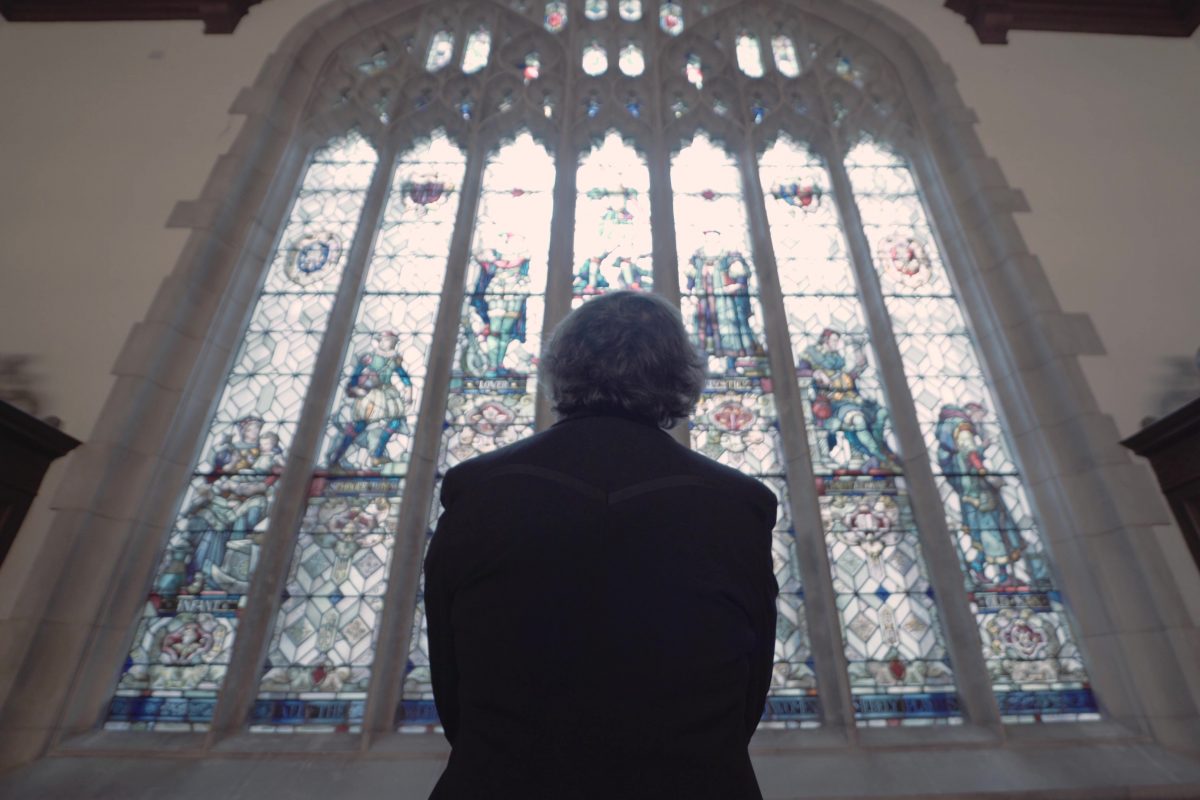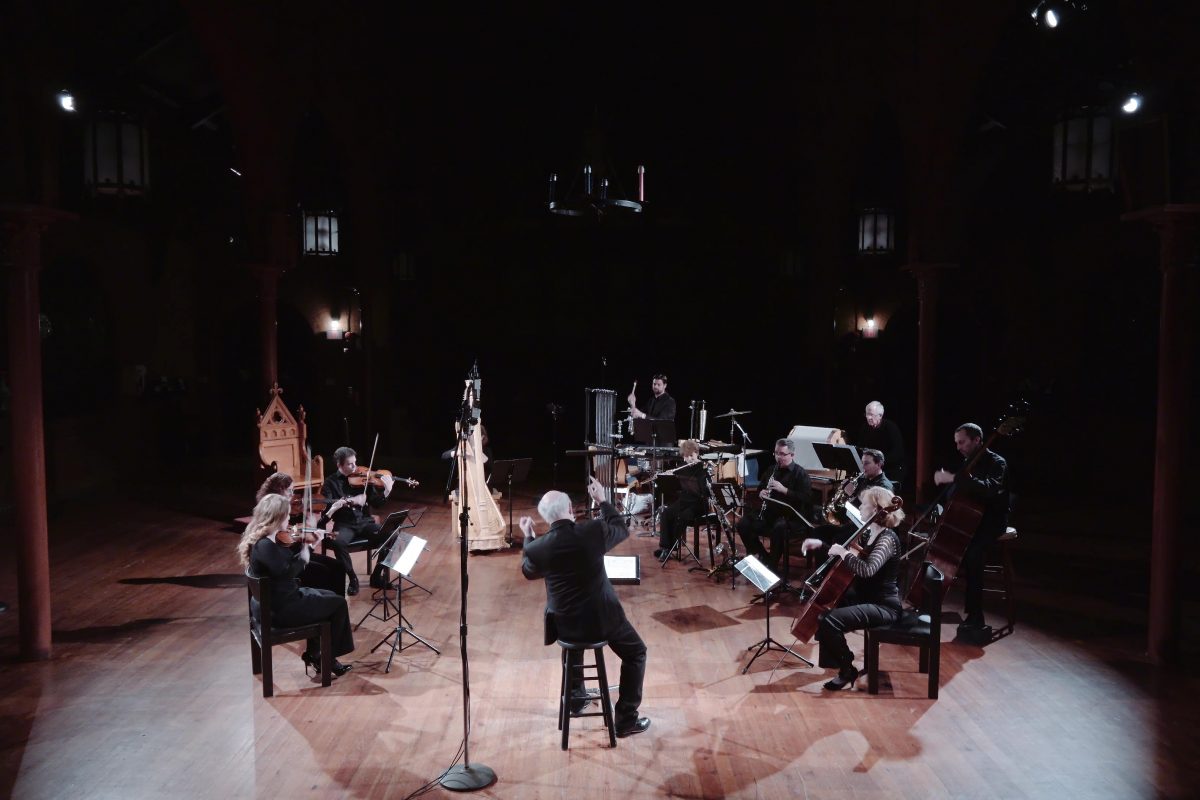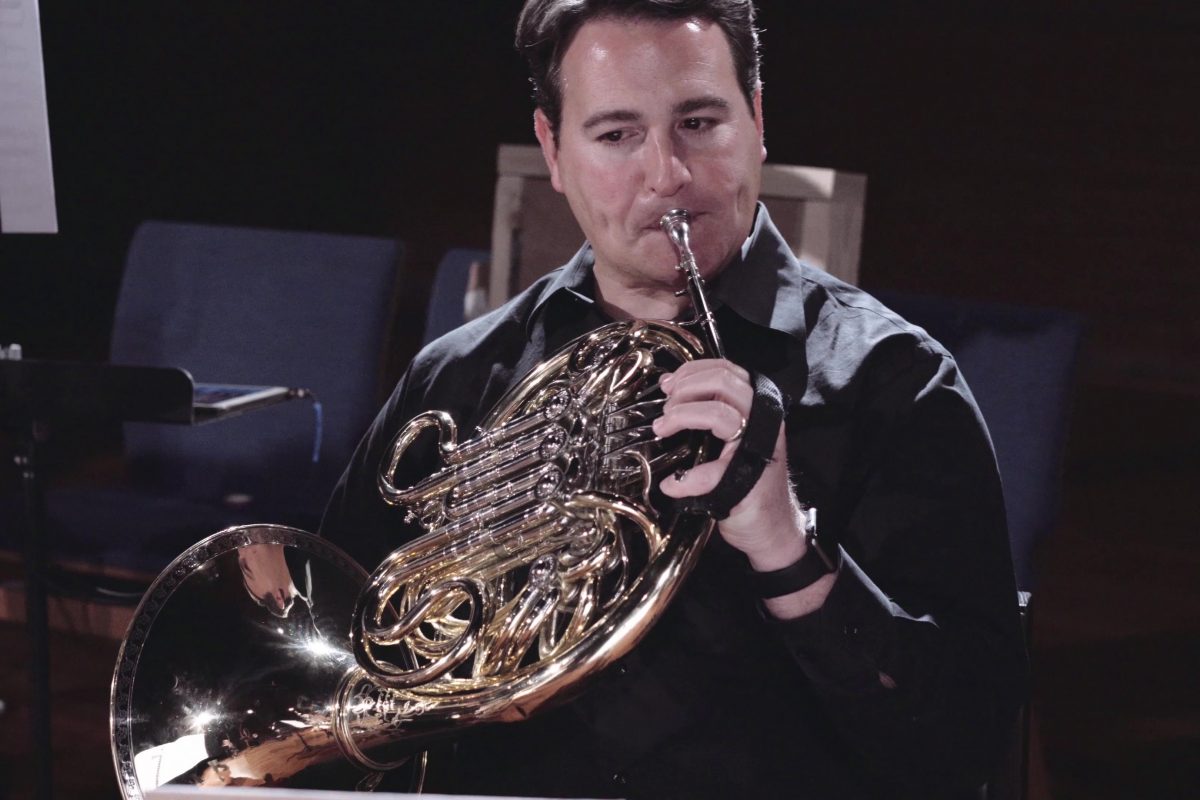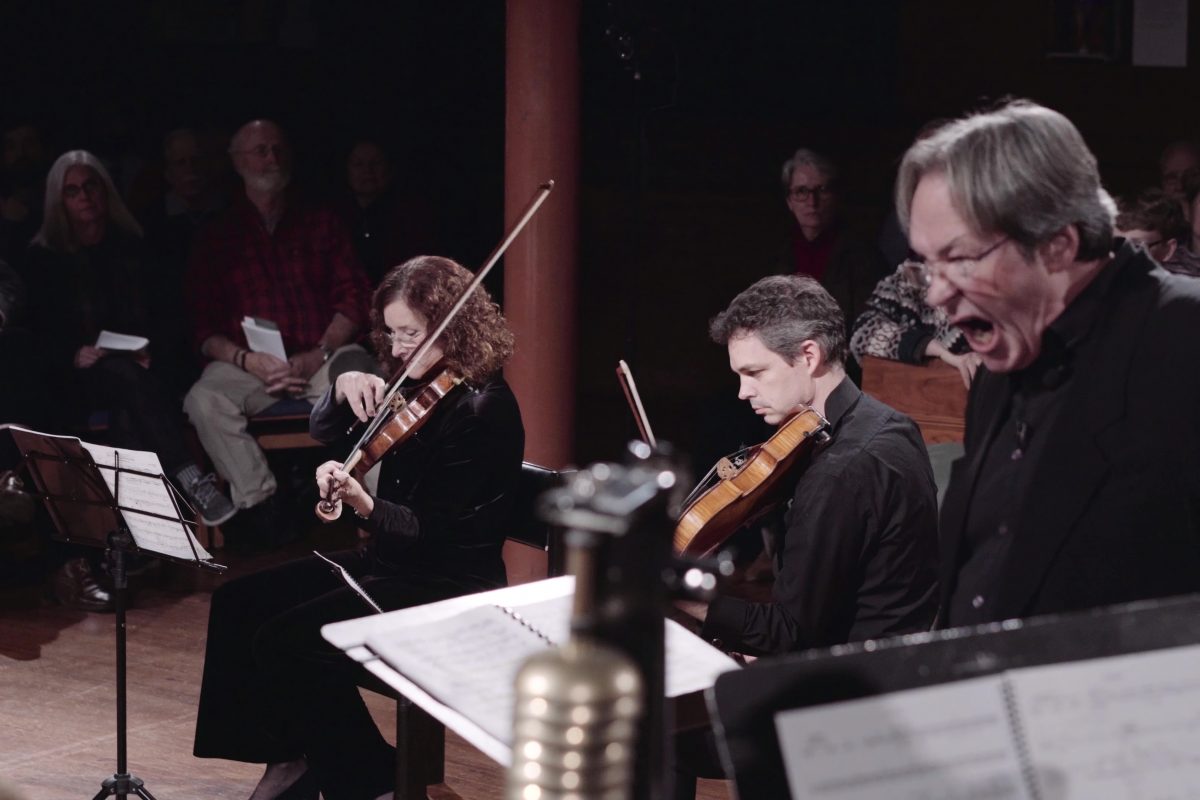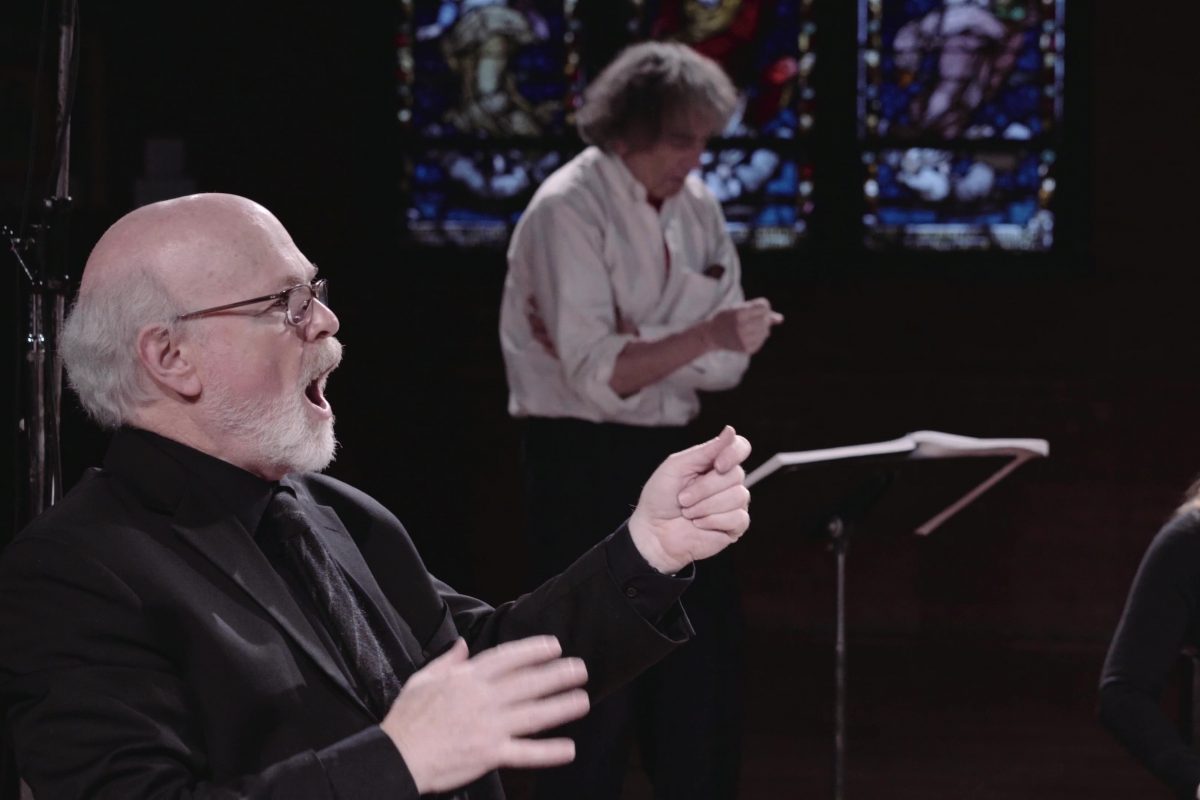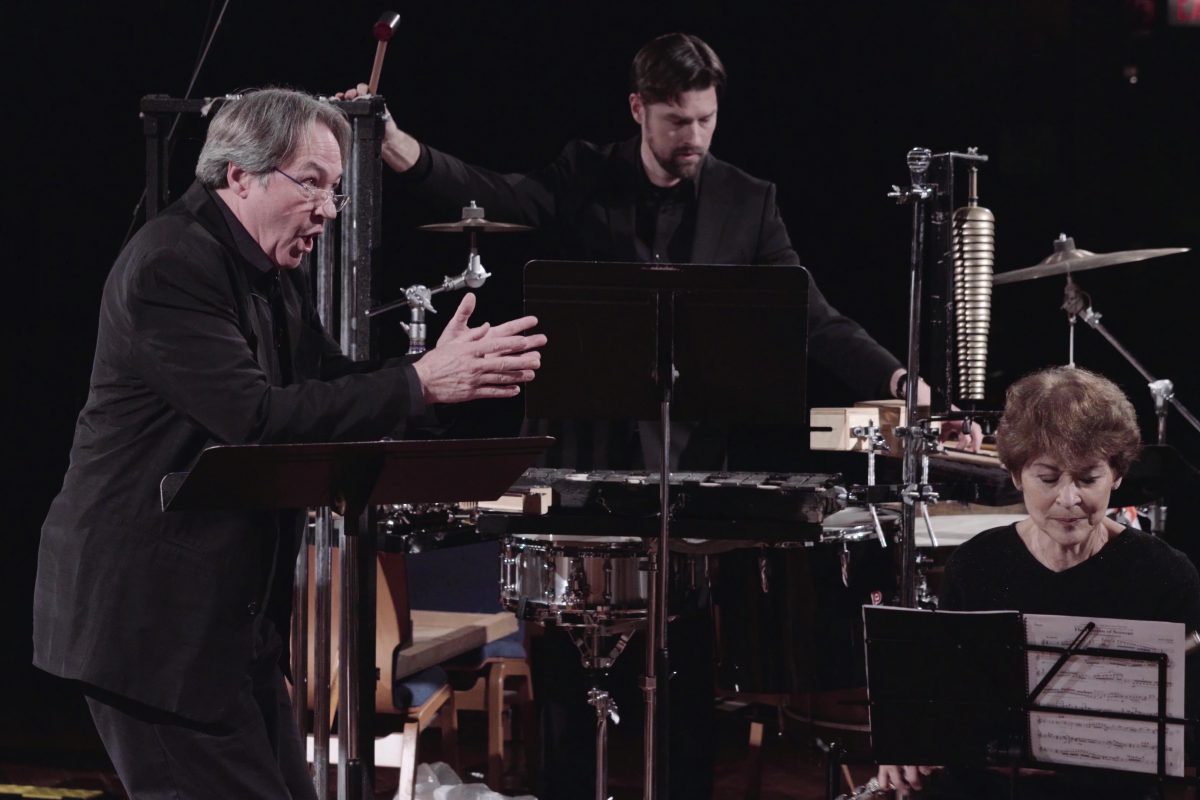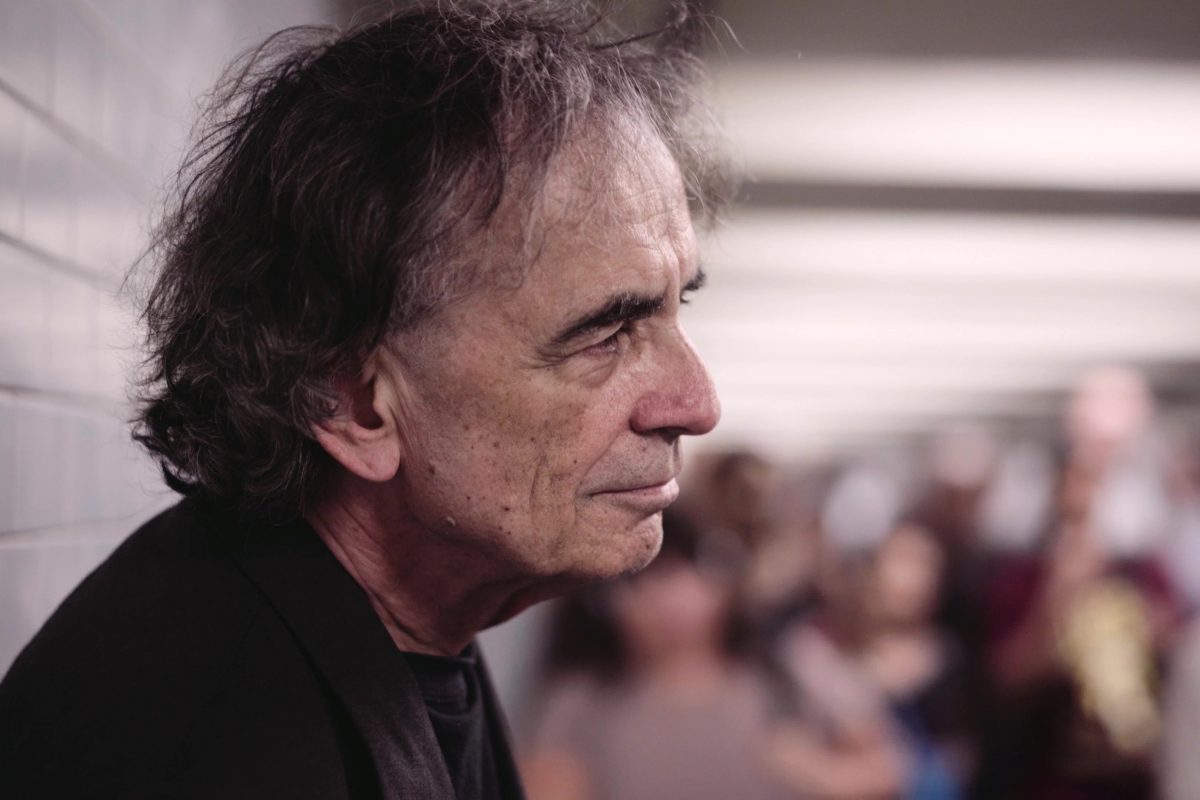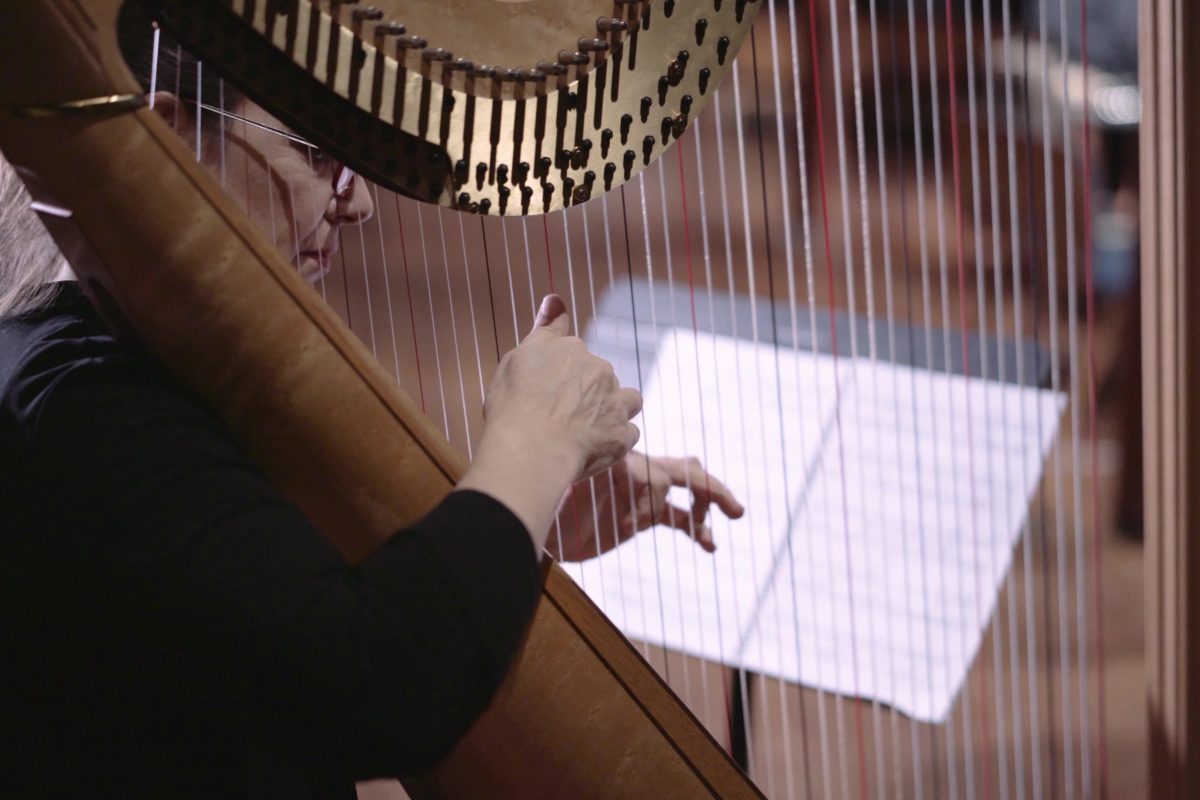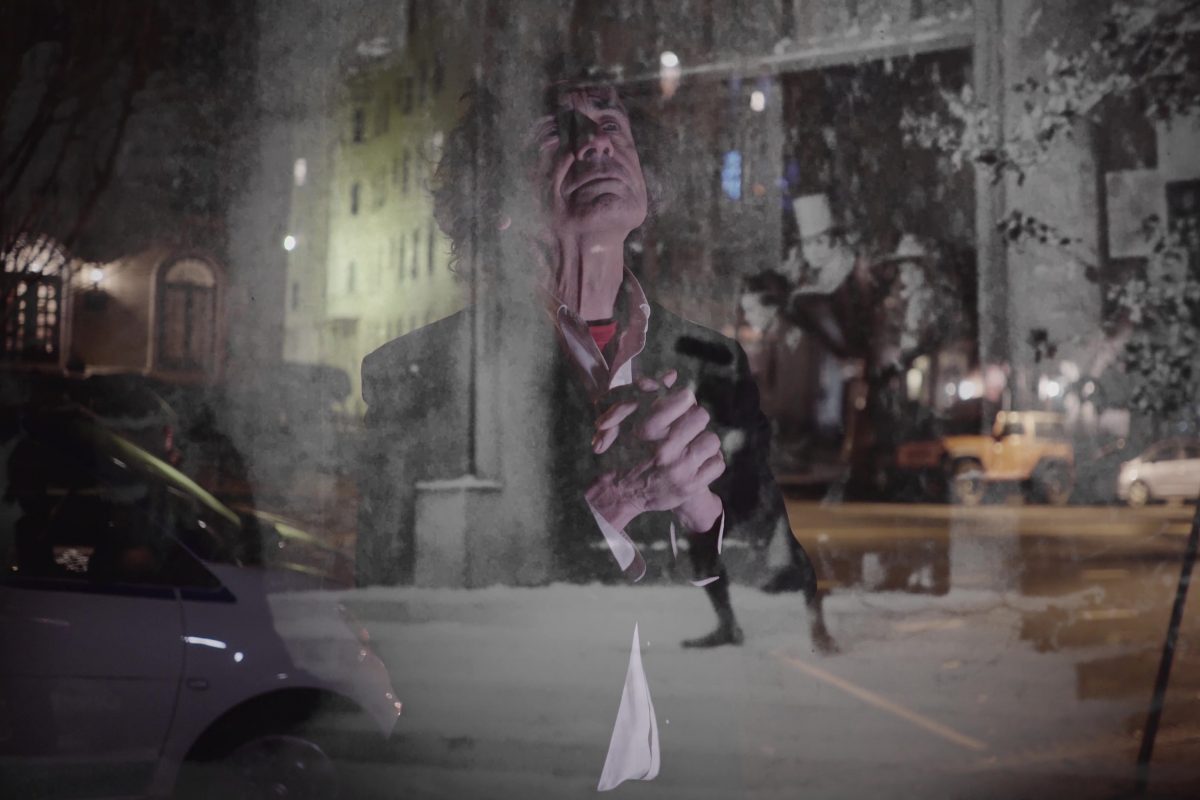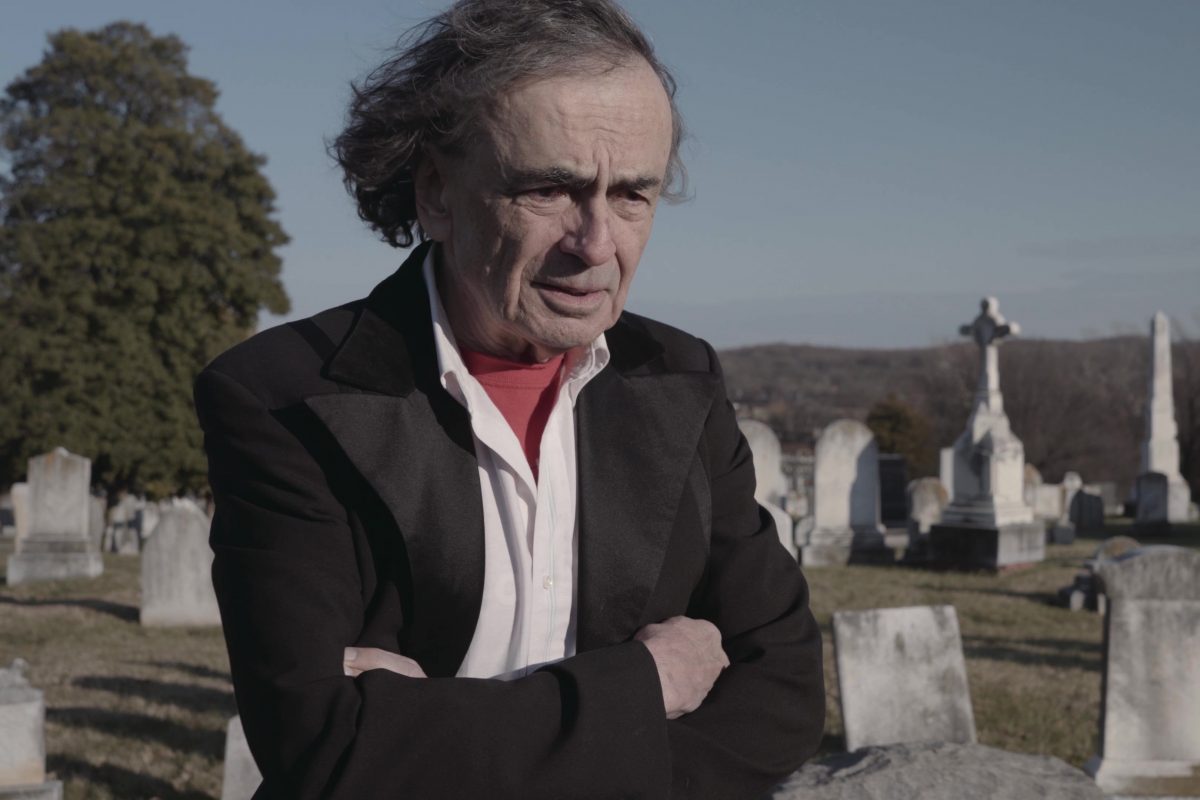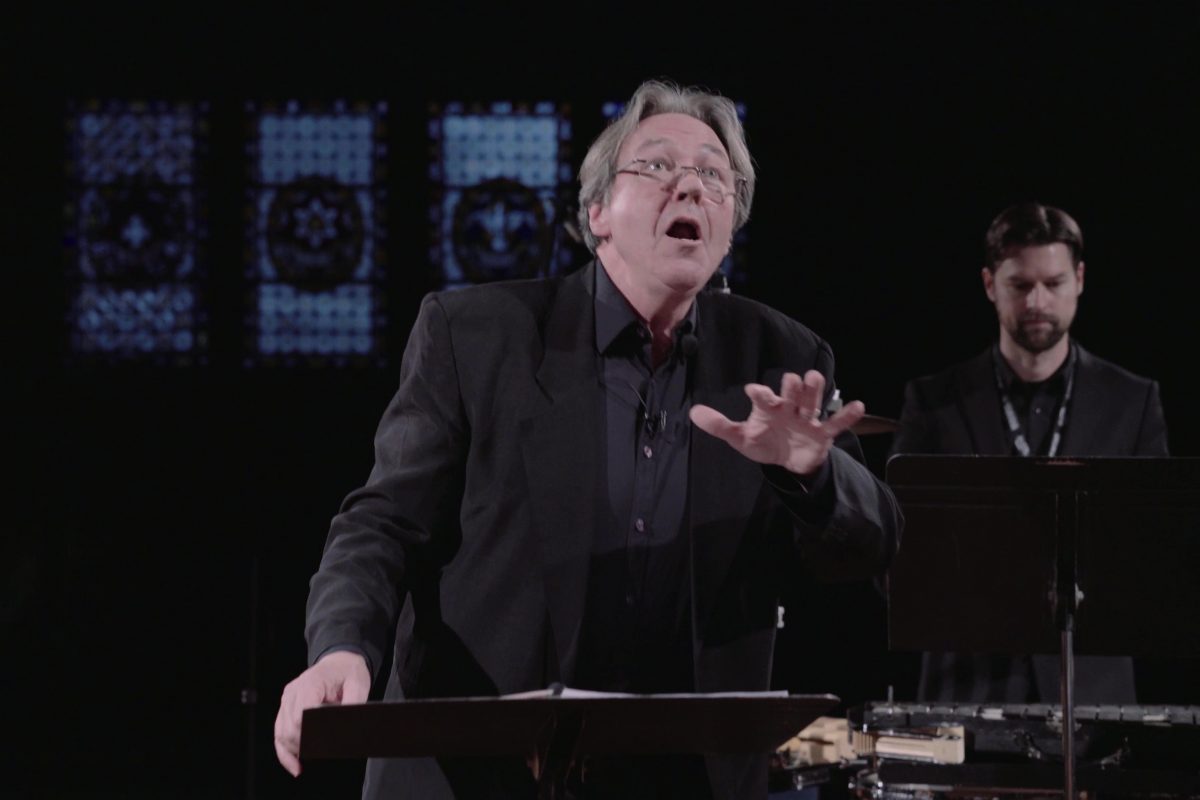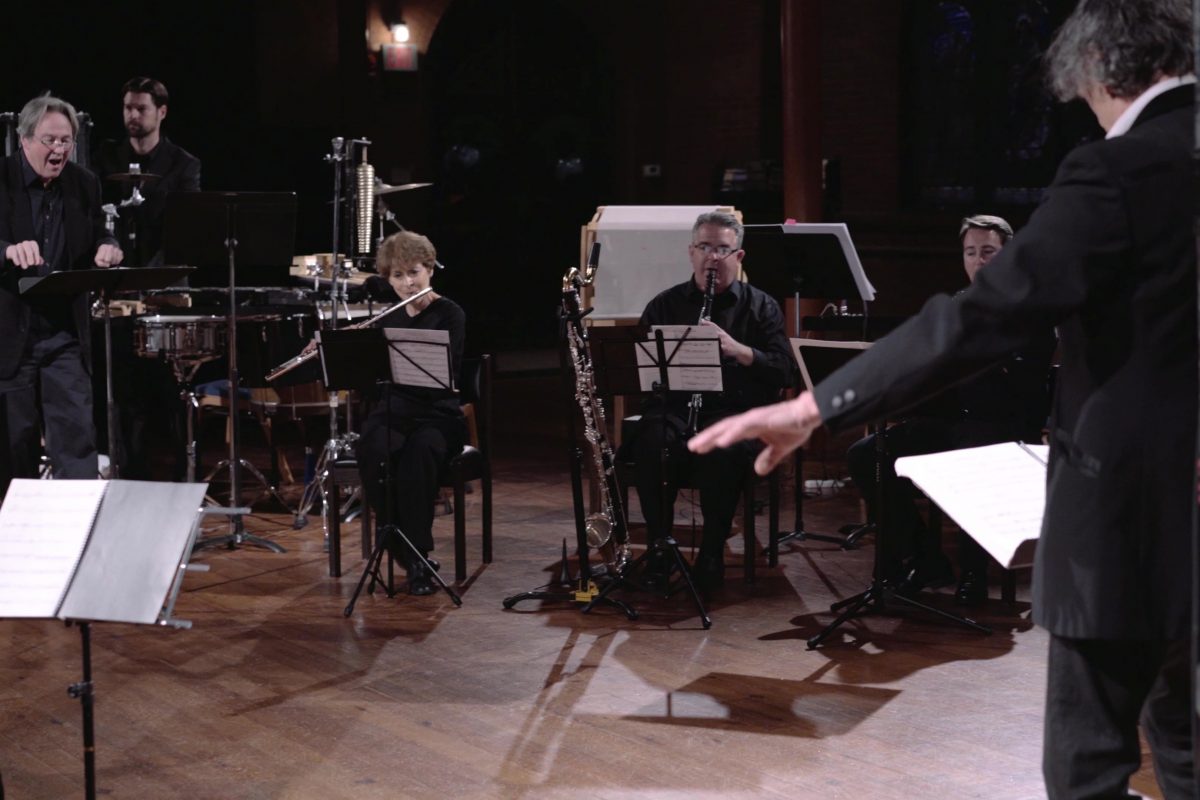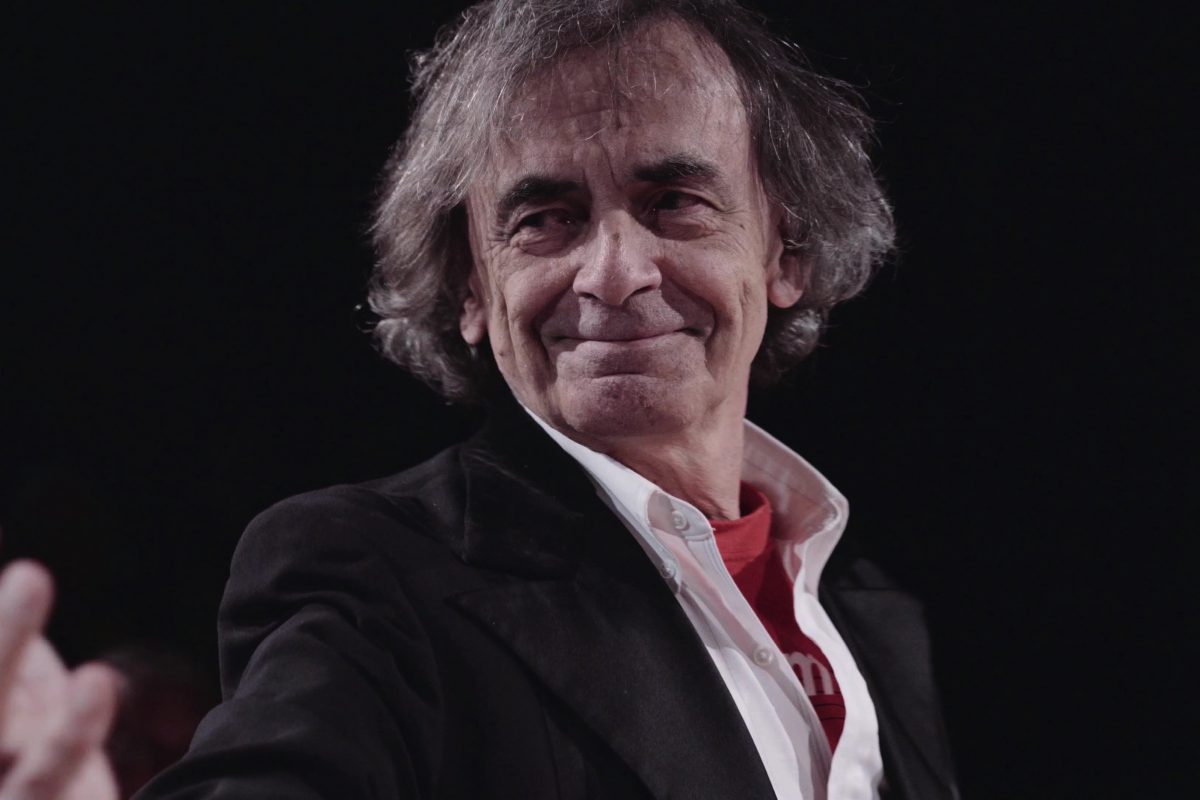
Cast & Crew
H. PAUL MOON
Director / Cinematographer / Editor
H. Paul Moon (zenviolence.com) is a filmmaker whose works include short and feature-length documentaries, screened and awarded at over two hundred film festivals worldwide. He teaches editing at Docs In Progress and George Mason University, and manages a network of online communities at focuspulling.com and docofilm.com that keep pace with new camera technologies and documentary news. Works include Sitka: A Piano Documentary (sitkadoc.com) about the craftsmanship of Steinway pianos, and Quartet for the End of Time (quatuor.xyz) about Olivier Messiaen’s transcendent WWII composition. Moon’s first feature, an acclaimed and award-winning documentary about the life and music of American composer Samuel Barber (samuelbarberfilm.com), premiered on PBS, and he is currently finishing another documentary feature about Western poetry (westdocumentary.com). His ongoing bicentennial multimedia works on poet Walt Whitman are featured at whitmanonfilm.com.
WILLIAM SHARP
Baritone
William Sharp has made many appearances with the 21st Century Consort, including important premieres and recordings of major works by such composers as Jon Deak, Scott Wheeler and David Froom. His concerts also include those with Opera Lafayette at Strathmore and at Lincoln Center, The New York Festival of Song at Carnegie Hall, and chamber music at the Caramoor Festival, where he performed Schumann’s Liederkreis Op. 39 with pianist Vladimir Feltsman, and Beethoven’s An die Ferne Geliebte with pianist Michael Barrett. He is the winner of several prestigious awards including the Carnegie Hall International Music Competition, the Young Concert Artists International Audition and the Geneva International Music Competition. Also known for his performances of the early music repertoire, he frequently performs as soloist with the Handel & Haydn Society, Tafelmusik Baroque Orchestra, the Bethlehem Bach Festival, the Folger Consort, and the American Bach Soloists. A highly respected recording artist, William Sharp was nominated for a Grammy award (Best Classical Vocal Performance) for his recording featuring songs of American composers on New World Records, and his recording of Leonard Bernstein’s final major work, Arias and Barcarolles, received a Grammy in 1990. Mr. Sharp serves on the Voice Faculty of Peabody Conservatory of Music of Johns Hopkins University.
JON DEAK
Composer
A prominent instrumentalist, Jon Deak was for many years the Associate Principal Bassist of the New York Philharmonic. As a composer, he has written over 300 works, and has had his music played by Orchestras such as the Chicago Symphony, the National Symphony and the New York Philharmonic. His Concerto for String Quartet and Orchestra, “The Headless Horseman,” was nominated for a Pulitzer Prize in 1992. His music may also be heard on several TV series and many recordings.
In 1995 he founded the Very Young Composers, a national award-winning program, having since gone international in scope, whereby Public School children, age 9 – 13 have completely composed and orchestrated their own music for the New York Philharmonic, the Colorado Symphony, and ensembles across the country and on four continents. Jon Deak is the Young Composer Advocate of the New York Philharmonic.
Mr. Deak was Composer-In-Residence with the Colorado Symphony from 1994-1997 under the Meet The Composer Residencies Program, which included affiliations with the Colorado Children’s Chorale and Denver Public Schools. Among the programs he inaugurated in connection with his Denver residency are: the “Source Project,” a new music series in the Denver Performing Arts Complex, which brought together a stunning display of creativity by Colorado composers; and a restructuring of the pre-concert lecture format into a pre-concert “event” that includes drama and live music. Mr. Deak became a familiar figure around Denver as he moved from school to school teaching composition and creativity to young people of all ages and backgrounds.
Mr. Deak’s compositions have been performed at music festivals worldwide and by such institutions as the New York Philharmonic, the Chicago, National, Minnesota, Cincinnati, Seattle, New Jersey, Atlanta, Colorado, and many other symphony orchestras and chamber groups. His discography includes recent releases on Centaur, CRI, Innova, and Naxos records.
Mr. Deak regularly participates in fundraising events to aid symphony orchestras, and has been an outspoken environmental and educational advocate.
An avid wilderness mountaineer, he has led climbing expeditions into the Canadian Rockies, Alaska, and the Himalayas.
CHRISTOPHER KENDALL
Conductor & Producer
Christopher Kendall is dean emeritus and professor at the University of Michigan School of Music, Theatre & Dance. From 2005 through 2015 he was the school’s dean, responsible for launching numerous initiatives; for strengthening the diversity of the faculty, staff, and student body; for the funding and design of a $30M expansion/renovation of the music building; for launching the interdisciplinary enterprise ArtsEngine and its national initiative a2ru (Alliance for the Arts at Research Universities); and, before completing his second term, bringing the school to 80 percent of its $90M capital campaign goal. In Washington, in addition to his work with 21st Century Consort, he is founder, co-director, and lutenist of the Folger Consort, ensemble-in-residence at the Folger Shakespeare Library since 1977. The ensemble has toured and recorded extensively, and has recently produced its fourth in a series of collaborations with British actor Sir Derek Jacobi, in performances at the Globe Theatre in London, in California’s Napa Valley, and at Strathmore Hall and the Kennedy Center. Mr. Kendall served as director of the University of Maryland School of Music from 1996 to 2005 during a period of rapid development at the school and its move to the Clarice Smith Performing Arts Center. Associate conductor of the Seattle Symphony from 1987 to 1992, and director of the Music Division and Tanglewood Institute of the Boston University School for the Arts from 1993 to 1996, Mr. Kendall has guest conducted many orchestras and ensembles in repertoire from the 18th to the 21st centuries. His recordings can be heard on the British ASV, Arabesque, Bard, Centaur, Delos, Innova, Nonesuch, and Smithsonian Collection labels.
ALEXANDRA OSBORNE
Violin
Alexandra Osborne was appointed to the National Symphony Orchestra by Christoph Eschenbach as the youngest member of the violin section in 2009. Prior to this, she performed as a regular substitute with the Philadelphia Orchestra, including invitations for the 2006 Florida/Puerto Rico tour and its own chamber music series. She has also appeared with the Pittsburgh Symphony Orchestra for two recent European festival tours, playing at the BBC Proms and the Lucerne, Bonn, and Grafenegg festivals. Osborne, herself Australian, has appeared as soloist with all of the major Australian orchestras: the Auckland Philharmonia, the SBS Radio and Television Orchestra, the University of Melbourne Symphony, and the Eclipse Chamber Orchestra. She made her US solo debut in 2004 with the South Bend Symphony. In 2012, she was a featured soloist with the National Symphony with Steven Reineke and performed the Dvorak Piano Quintet with Maestro Eschenbach on the Kennedy Center’s Millennium Stage. An active chamber musician, she has appeared at the Taos, Pan Pacific, Kneisel Hall, Sarasota, and Colorado music festivals, the Philadelphia Chamber Music Society, and has been named a featured artist in Symphony Magazine. Osborne is a laureate of the 2001 Michael Hill International Violin Competition and a gold medalist of the Symphony Australia Young Performers Award. She has performed as assistant concertmaster at the Colorado Music Festival and recently was guest concertmaster with the Auckland Philharmonia. Osborne graduated with bachelor and master of music degrees from the Curtis Institute of Music and the Juilliard School. She frequently performs with the Last Stand Quartet and is a teaching artist for the American Youth Philharmonic Orchestra, as well as a half marathoner.
JANE STEWART
Violin
Jane Stewart has been a first violinist with the National Symphony Orchestra since 1981. She earned both her bachelor of arts (summa cum laude, Phi Beta Kappa) and master of music degrees from Yale University. A devoted chamber musician, Ms. Stewart has performed frequently at the Terrace Theater, the Phillips Collection, the Corcoran Gallery, the World Bank, and the Library of Congress. She has been a member of the Chamber Soloists of Washington, the U.S. Holocaust Memorial Museum Chamber Ensemble, and the Manchester String Quartet. A regular guest artist with the 21st Century Consort, she is currently a member of the Eclipse Chamber Orchestra and the Kennedy String Quartet. In addition, she coaches chamber music, teaches classes on audition preparation, and gives pre-concert lectures. Her several chamber music CDs include one Grammy nominee. As a concerto soloist, Ms. Stewart has appeared with the National Symphony, the New Jersey Symphony, and the Eclipse Chamber Orchestra. Her violin was made by the Venetian master Matteo Goffriller and dates from 1691.
RACHEL YOUNG
Cello
Rachel Young, a National Symphony Orchestra cellist since 1998, brings a deep and diverse musical background to her work, ranging from an avid engagement in chamber music to teaching cello and recording film scores and bluegrass albums. She is a member of the Kari Quartet, the 21st Century Consort, and the cello quartet 4In Correspondence. Prior to joining the Symphony, Ms. Young was principal cellist of the Kennedy Center Opera House Orchestra. She has performed with many groups, including the Smithsonian Chamber Players, the National Musical Arts Society, the Embassy Series, the Washington Music Ensemble, and the Contemporary Music Forum. She has appeared on WGMS and WGBH radio broadcasts, at the Garth Newel Music Center, the John F. Kennedy Center, and at the White House. Ms. Young has enjoyed solo appearances with the National Philharmonic, the Peabody Symphony Orchestra, and the New England Conservatory Chamber Orchestra. Ms. Young was born and raised in Washington, DC. She earned a bachelor of music degree from the New England Conservatory of Music, where she studied with Laurence Lesser, and her master’s degree in cello performance with Stephen Kates at the Peabody Conservatory. She was a fellow at the Tanglewood Music Center and attended the Britten-Pears School for Advanced Musical Studies in England, where she studied with William Pleeth. Young now teaches a small studio of cellists and serves on the board of the Kindler Cello Society.
DANIEL FOSTER
Viola
Daniel Foster has had a varied career encompassing orchestral, chamber, and solo playing, as well as teaching. After winning the first prize in both the William Primrose and Washington International competitions, Mr. Foster became a member of the National Symphony’s viola section in 1993 and was appointed principal by music director Leonard Slatkin in 1995. Mr. Foster has appeared frequently as soloist with the National Symphony since his appointment. Mr. Foster is a member of the critically acclaimed Dryden Quartet, along with his cousins Nicolas and Yumi Kendall and National Symphony concertmaster Nurit Bar-Josef, and is also a founding member of the Kennedy Center Chamber Players. Mr. Foster is on the faculty at the University of Maryland and has given master classes at Oberlin and Peabody Conservatories, the University of Michigan, and the Cleveland Institute of Music. He has been a faculty member for the National Orchestral Institute, and is a member of the International Principals faculty at the Pacific Music Festival in Sapporo, Japan.
RICHARD BARBER
Double Bass
Richard Barber, assistant principal bassist of the National Symphony, was born into a musical family, beginning piano studies at age seven and double bass at age nine. His decision to pursue music (and not science) as a career was made at age eighteen. That decision took him to Baltimore, where he studied with former National Symphony Orchestra principal bassist Harold Robinson, earning a bachelor of music degree in three years from the Peabody Conservatory of Music. Winning his first audition two weeks after graduation, Mr. Barber moved to Arizona to join the Phoenix Symphony. After three seasons in Phoenix and two summers touring Europe with the Schleswig-Holstein Music Festival Orchestra, he joined the National Symphony Orchestra in 1995 as a section bassist, and was promoted to assistant principal in 1996. Since then he has been particularly active in the Orchestra’s chamber music and education programs. He also appears regularly at SAAM with the 21st Century Consort. He plays a double bass made ca. 1620 in Italy by the Brescian master Giovanni Paolo Maggini.
JAMES NICKEL
French Horn
James Nickel, French horn, has served as third horn with the National Symphony Orchestra since 2008. Previously, he was the assistant principal horn with the Dallas Symphony Orchestra, and associate principal horn with the Montreal Symphony Orchestra. He has also served as guest principal hornist with the Orpheus Chamber Orchestra on their European tour in 1998, and performed with the orchestras of Houston, Detroit, Fort Worth, Rhode Island, and the Boston Philharmonic. He can be heard on recordings by the National, Dallas, Detroit, and Montreal symphonies, and also with his horn colleagues from the Dallas and Houston symphonies on their Crystal Records CD Texas Horns. Mr. Nickel has been featured as a soloist with the National Symphony, the Dallas Symphony, the Florida Orchestra, the Southeast Iowa Symphony Orchestra, and the New England Conservatory Symphony Orchestra. Mr. Nickel has participated in the Stellenbosch International Chamber Music Festival in Stellenbosch, South Africa; the Music in the Mountains festival in Durango, CO; the Sun Valley Summer Symphony in Idaho; the National Repertory Orchestra; the Spoleto festival; the American Wind Symphony; the Texas Music Festival; and the Sarasota Music Festival. In addition to performing, Mr. Nickel is on faculty at both Catholic University in Washington, DC, and George Mason University in Fairfax, VA.
